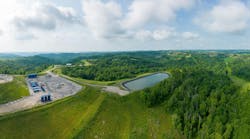Eric Watkins
Oil Diplomacy Editor
Royal Dutch Shell PLC plans to limit the effect on wildlife from exploration in the Beaufort and Chukchi seas off Alaska after the US designated some areas as "critical" for polar bears.
"Shell's plans for exploring in the Beaufort and Chukchi seas analyze and mitigate any potential impacts to polar bears and other marine and terrestrial species," it said. The statement came after the US Fish and Wildlife Service designated more than 448,000 sq km of onshore barrier islands, deeming areas and offshore ice as "critical habitat" for polar bears.
Next year, Shell plans drilling in the Beaufort Sea, which the US Department of the Interior estimates to hold as much as 7 billion bbl of oil and 566 billion cu m of natural gas.
Eyeing the environment
Other firms are following similar lines when it comes to being careful about drilling in the arctic regions—a point underlined recently by Maersk Oil, which was awarded a license for work off Greenland.
"Any drilling activity will not start for another 3-5 years and will commence only after all environmental aspects of the operation have been fully assessed and addressed," said Maersk Oil, a unit of the A.P. Moller-Maersk oil and shipping group.
Maersk now aims to acquire, process, and interpret seismic data from the license area, adding that if exploration activities lead to the discovery of a commercially viable field development, "oil production could commence in 10-15 years from today."
Altogether, seven international oil companies were offered oil and gas exploration license by the government of Greenland: ConocoPhillips, Shell, Statoil, GDF Suez, Cairn Energy, DONG Energy, and Greenland's Nunaoil.
Intense competition
Greenland's Minister for Industry and Mineral Resources Ove Karl Berthelsen described the competition for licenses as "fierce" and said the result of the licensing round is an "important step" towards achieving a sustainable economy for Greenland.
"The companies that have been awarded a license were selected according to a thorough evaluation of…their experience in managing safety, health, and environmental issues," said Berthelsen, expressing confidence that license holders will help explore "in a safe and appropriate manner."
But Dr. Martin Preston, a marine pollution specialist at the UK's Liverpool University, expressed concerns about safety plans for the Arctic, saying that a spill there could be far worse than this year's Macondo disaster.
"The worst-case scenario is an uncontrolled release of oil right at the end of the drilling season because there your time window to respond is extremely restricted," said Preston, who added, "I'm not sure that they have really taken on board some of the risks that are associated with this high-latitude work."
More Oil & Gas Journal Current Issue Articles
More Oil & Gas Journal Archives Issue Articles
View Oil and Gas Articles on PennEnergy.com
